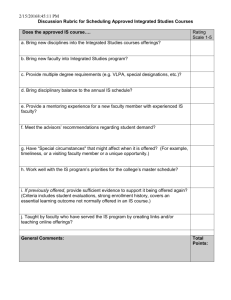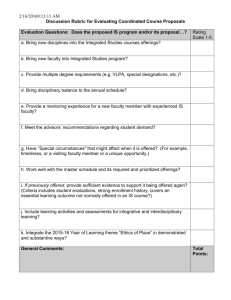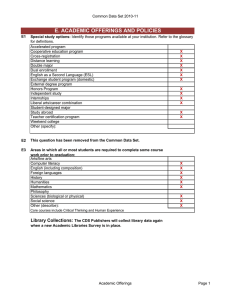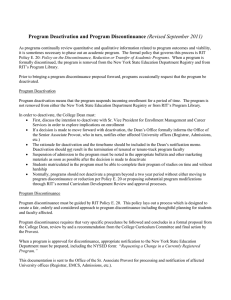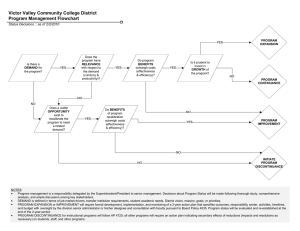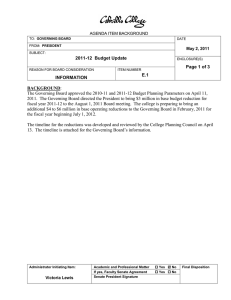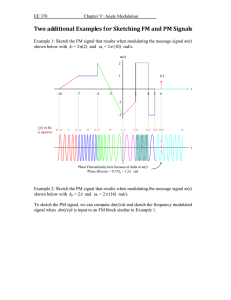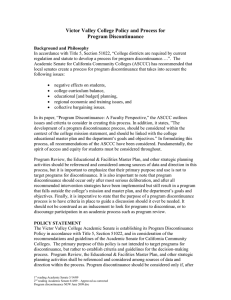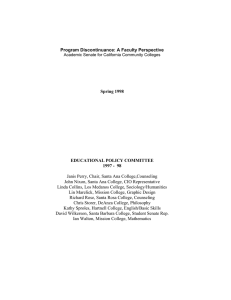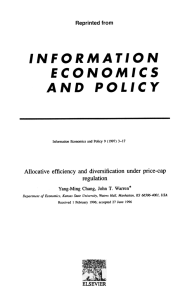Document 12995757
advertisement
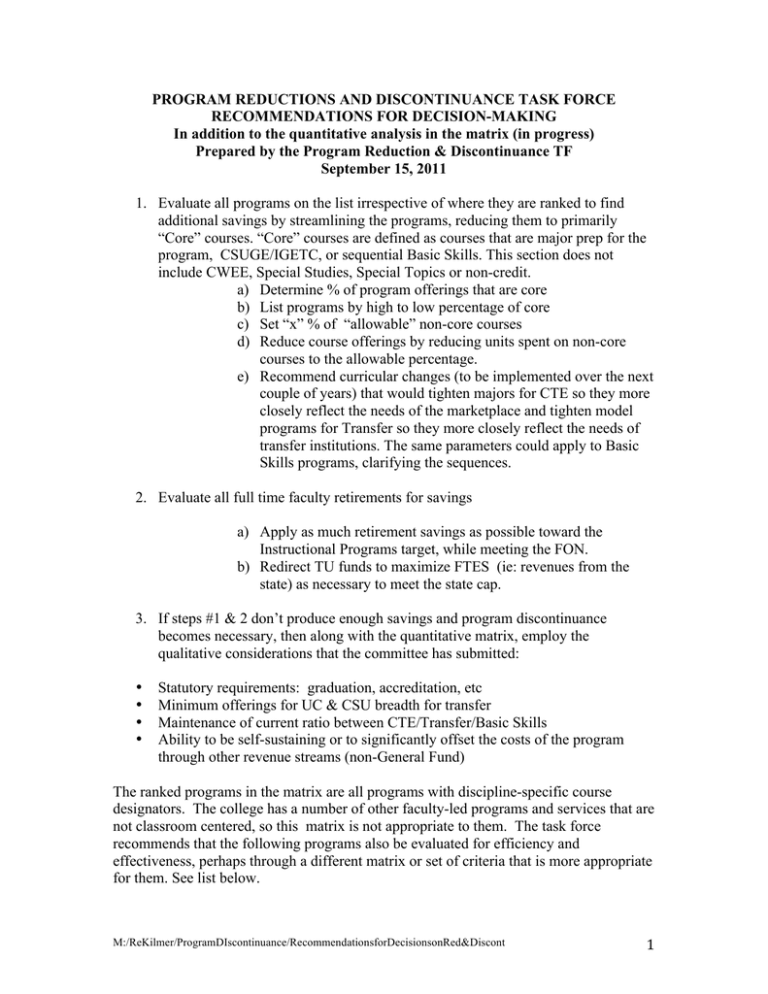
PROGRAM REDUCTIONS AND DISCONTINUANCE TASK FORCE RECOMMENDATIONS FOR DECISION-MAKING In addition to the quantitative analysis in the matrix (in progress) Prepared by the Program Reduction & Discontinuance TF September 15, 2011 1. Evaluate all programs on the list irrespective of where they are ranked to find additional savings by streamlining the programs, reducing them to primarily “Core” courses. “Core” courses are defined as courses that are major prep for the program, CSUGE/IGETC, or sequential Basic Skills. This section does not include CWEE, Special Studies, Special Topics or non-credit. a) Determine % of program offerings that are core b) List programs by high to low percentage of core c) Set “x” % of “allowable” non-core courses d) Reduce course offerings by reducing units spent on non-core courses to the allowable percentage. e) Recommend curricular changes (to be implemented over the next couple of years) that would tighten majors for CTE so they more closely reflect the needs of the marketplace and tighten model programs for Transfer so they more closely reflect the needs of transfer institutions. The same parameters could apply to Basic Skills programs, clarifying the sequences. 2. Evaluate all full time faculty retirements for savings a) Apply as much retirement savings as possible toward the Instructional Programs target, while meeting the FON. b) Redirect TU funds to maximize FTES (ie: revenues from the state) as necessary to meet the state cap. 3. If steps #1 & 2 don’t produce enough savings and program discontinuance becomes necessary, then along with the quantitative matrix, employ the qualitative considerations that the committee has submitted: • • • • Statutory requirements: graduation, accreditation, etc Minimum offerings for UC & CSU breadth for transfer Maintenance of current ratio between CTE/Transfer/Basic Skills Ability to be self-sustaining or to significantly offset the costs of the program through other revenue streams (non-General Fund) The ranked programs in the matrix are all programs with discipline-specific course designators. The college has a number of other faculty-led programs and services that are not classroom centered, so this matrix is not appropriate to them. The task force recommends that the following programs also be evaluated for efficiency and effectiveness, perhaps through a different matrix or set of criteria that is more appropriate for them. See list below. M:/ReKilmer/ProgramDIscontinuance/RecommendationsforDecisionsonRed&Discont 1 ADDITIONAL PROGRAMS: Programs and Services with some General Fund impact Cabrillo Stage Children Center Counseling CTC EOPS Honors In-service (Public Safety) Labs (WC/RC/MLC) Learning Communities Library MESA Puente Summer Migrant Ed Transfer and Career Center Tutorial M:/ReKilmer/ProgramDIscontinuance/RecommendationsforDecisionsonRed&Discont 2
